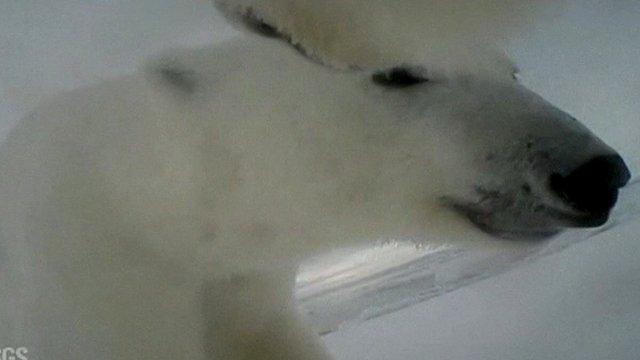'Depressed' Argentina polar bear Arturo dies at 30
- Published
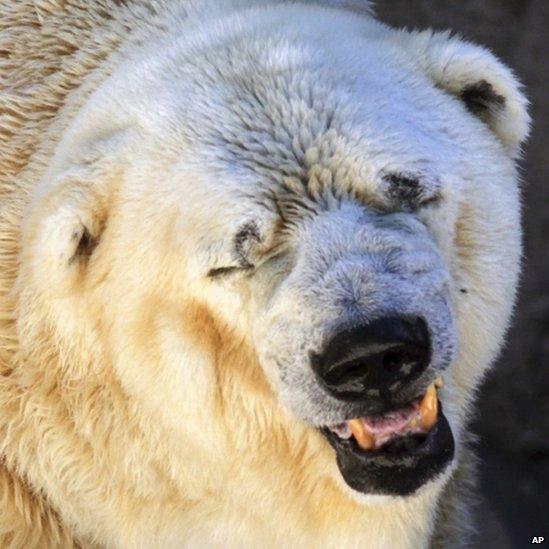
Arturo whose partner Pelusa died of cancer in 2012 was said to suffer from depression
Argentina's only polar bear has died at the age of 30, his zoo says.
Arturo, as he was known, came to the world's attention two years ago, when thousands of people signed a petition, external asking for him to be transferred to a colder climate in Canada.
But the request was denied, as officials at the Mendoza zoo said he was "too old" to be sedated and moved.
His partner Pelusa died of cancer in 2012, and he was said to have developed depression after that.
A "blood circulation imbalance" caused a general decline in his health and Arturo died on Sunday, the zoo said.
He was already weak due to old age, they added, with failing eyesight and sense of smell. He was blind on his right eye.
In his last days, he suffered loss of appetite and was said to have lost significant weight.
A team was watching the animal and considered putting him to sleep in the case of extreme suffering but, according to the zoo, "nature took its course".
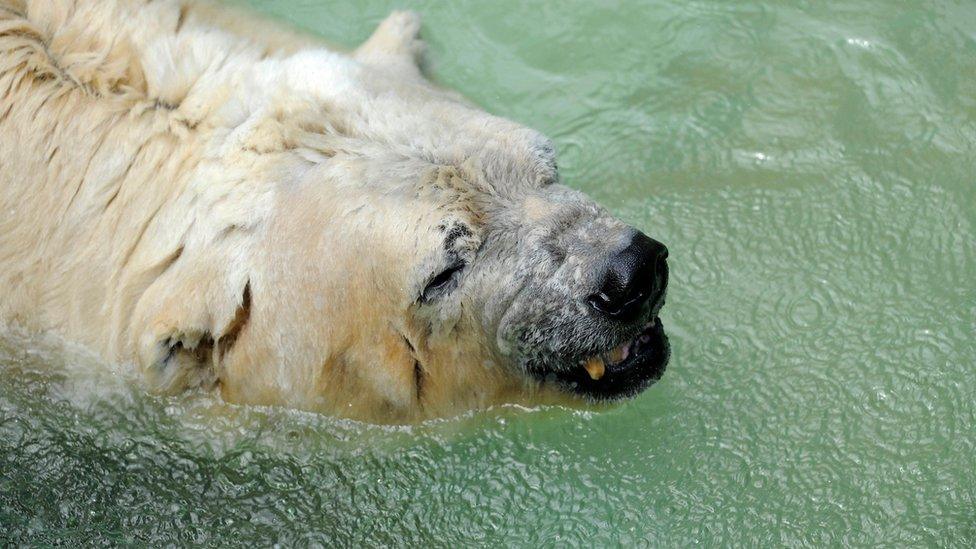
Arturo, seen here in 2014, was taken to Argentina at the age of eight
Arturo was brought from the US at the age of eight, and was close to turning 31.
He lived all his life in the zoo in Mendoza, local media said, a city where temperatures can climb above 30C.
Environmental groups including Greenpeace had argued that it was risky to keep polar bears in such a climate, and started a movement to get him out.
But officials also said he was "close to his caretakers" and ruled out his transfer.
He was described as the last polar bear in Argentina, after Winner, who lived in the capital Buenos Aires, died in 2012 during a heat wave.
Polar bears rarely live beyond 25 years.
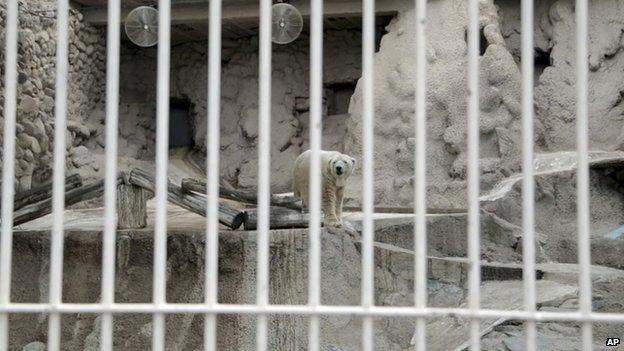
Environmentalists warn of the risks of keeping polar bears in potentially hot climates
The Mendoza zoo was closed to visitors last month after more than 60 animals died between December and May. Officials said outbreaks of bacteria and overcrowding were to blame.
Authorities said they wanted to convert it into an ecological park.
- Published23 July 2014
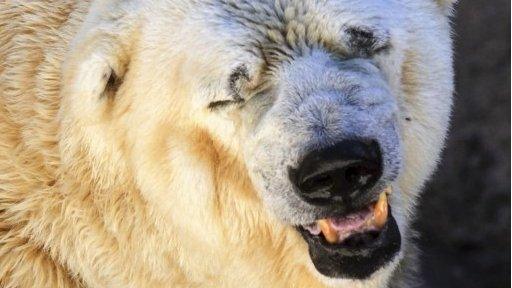
- Published22 March 2011
- Published15 January 2014
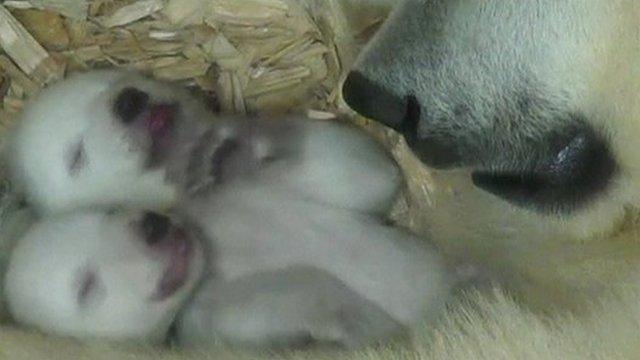
- Published8 June 2014
